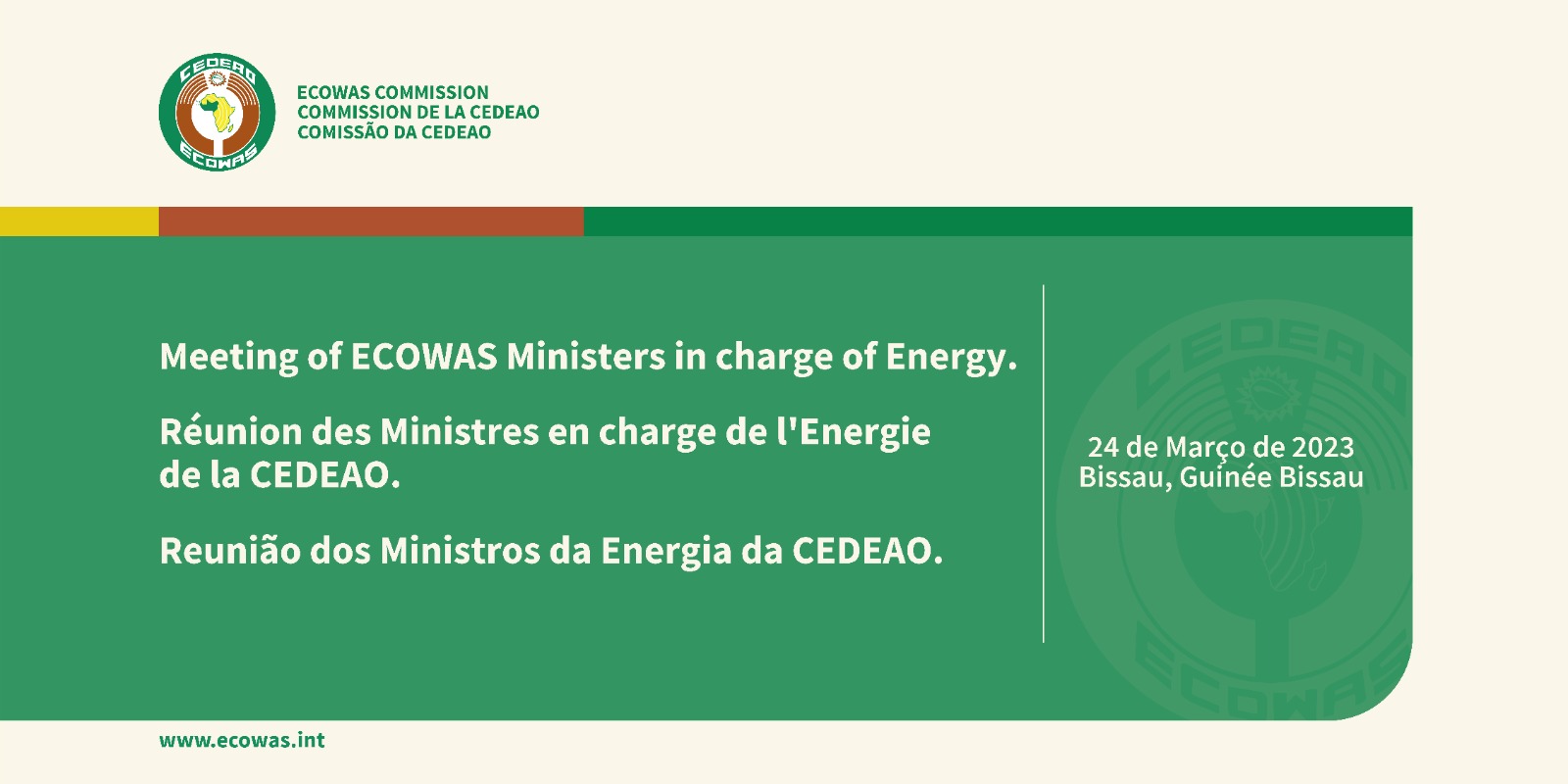Ministers of Energy of ECOWAS Member States meet in Bissau to adopt new Community texts in the West African energy sector
23 Mar, 2023Bissau, the capital of Guinea Bissau is hosting the meeting of Ministers of Energy of ECOWAS Member States this Friday, 24 March 2023. This session’s agenda is the adoption of a number of Community texts, notably the updated ECOWAS Energy Policy, the Regional Electricity Code and the Green Hydrogen Policy. A meeting of Energy Experts previously held in Bissau from 22 to 23 March 2023 had also considered these three documents.
Apart from the consideration and validation of the three (3) Community texts, the Ministers will be briefed on the operationalisation of the Regional Electricity Market and the West African Gas Pipeline Project. They will also launch the ECOWAS Energy Information System (EIS-ECOWAS) which is a platform that provides data and information for better planning, design and monitoring of energy sector strategies and policies. The session will be officially opened by the Minister of Energy and Industry of the Republic of Guinea Bissau, and ECOWAS Commissioner for Infrastructure, Energy and Digitalisation, Sédiko Douka, with the region’s Energy Ministers in attendance.
Delivering his speech during the meeting’s opening, Commissioner Douka referred to the critical challenge of access to energy services in West Africa, where the current rate is 53%: “For every three Africans who do not have access to electricity, one would be from West Africa. To address this situation, ECOWAS is developing an elaborate programme to access electricity through major regional projects financed by the World Bank, namely ECOREAP, BEST and ROGEAP.”
It should be pointed out that the European Union and WASCAL (West African Science Service Centre on Climate Change and Adapted Land Use) are the two technical and financial partners that supported the development of the three Community texts. The European Union supported the ECOWAS and UEMOA Commissions to the tune of 32 million Euros, through the programme “Improving Energy Sector Governance in West Africa, AGoSE-AO“, which facilitated the formulation of the updated Energy Policy and the Regional Electricity Code. WASCAL supported ECREEE in the formulation of the Regional Green Hydrogen Policy Project.
The regional energy policy ensures availability, reliability and quality of energy supply at a low cost. Green hydrogen is a clean and sustainable energy source that contributes to improving the region’s energy security and climate change resilience. Lastly, the Electricity Code allows, among other things, access to electricity services for all citizens at an affordable cost and provides an enabling environment in the electricity sector for investors and promoters while encouraging competition and transparency.


















